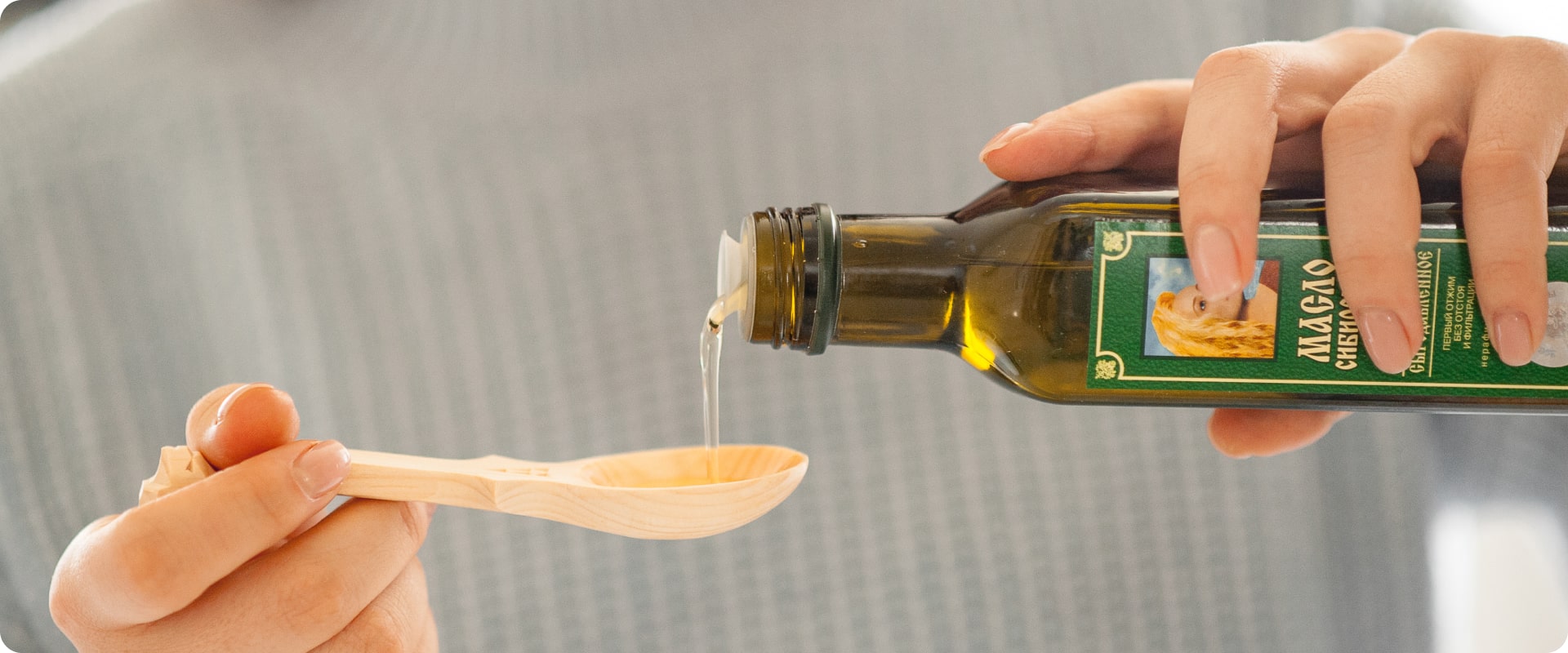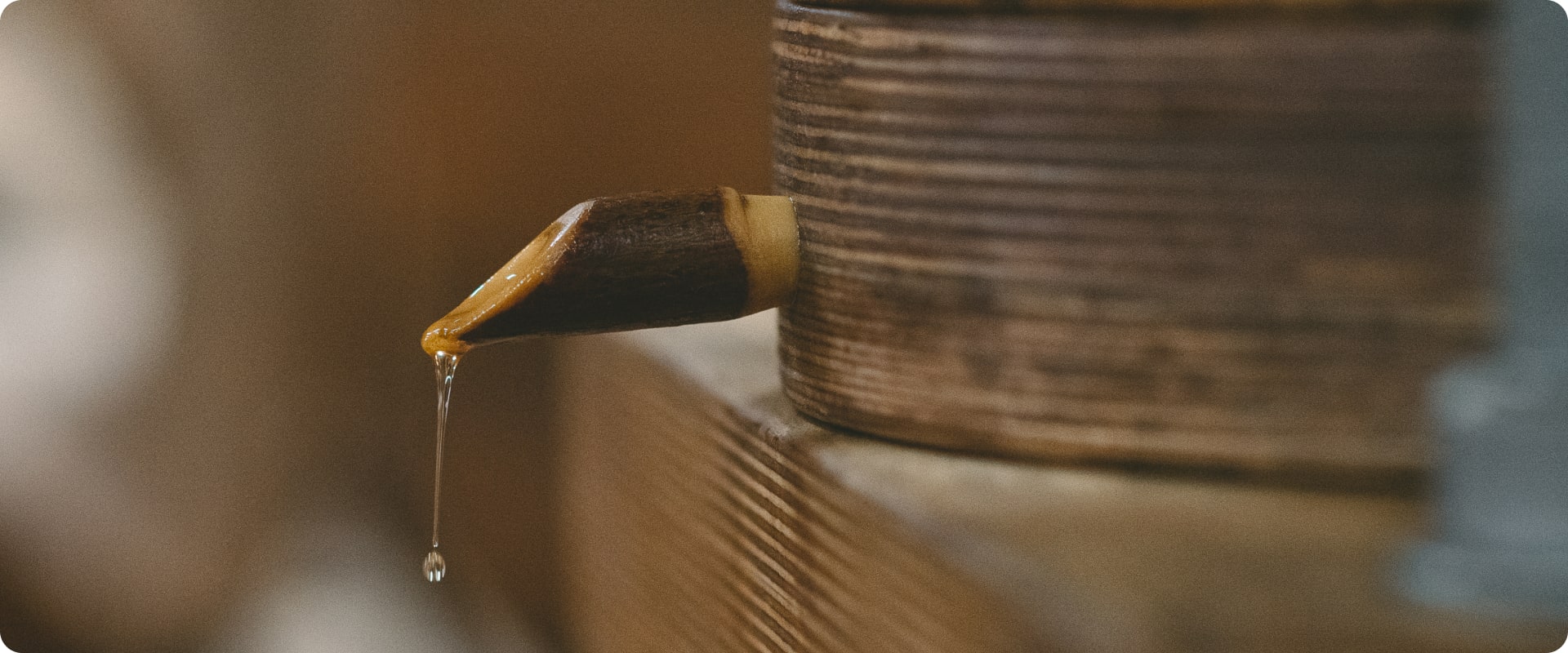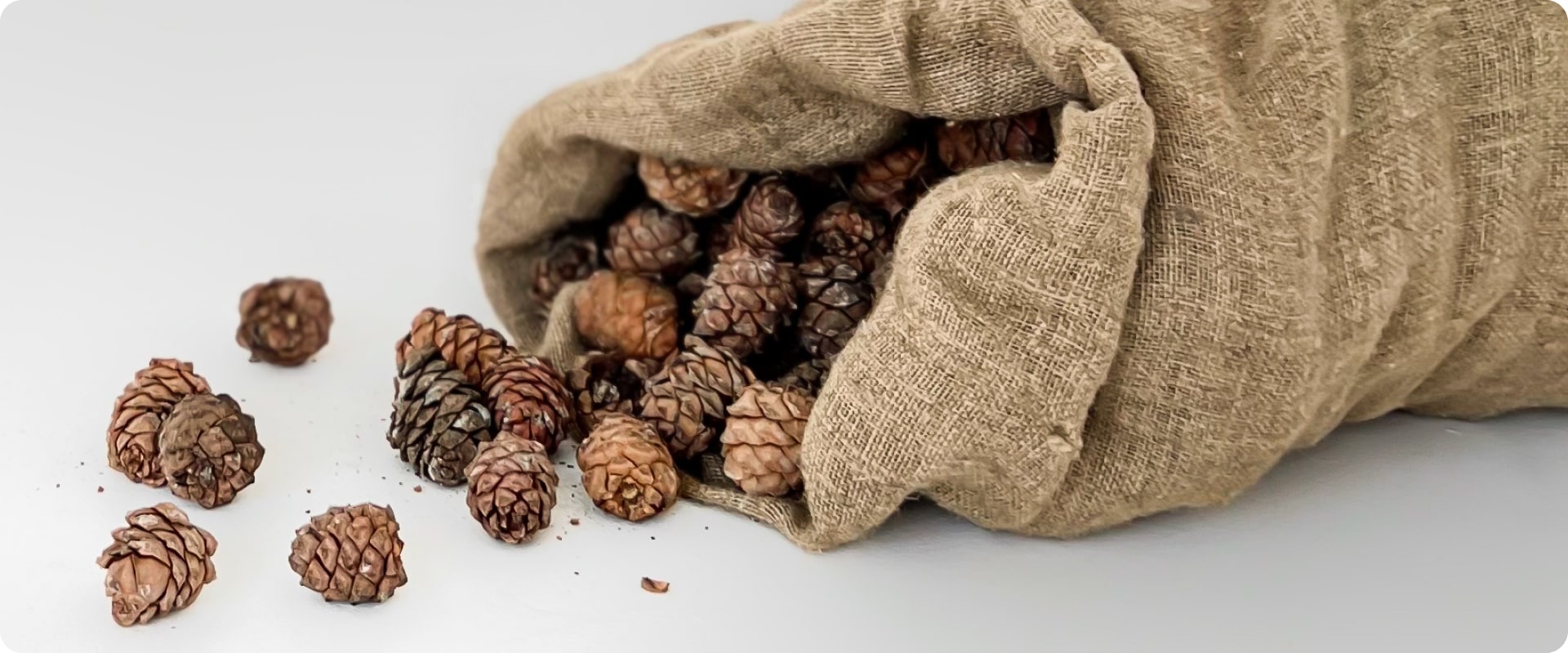Common myths about cedar oil. Interest in a healthy lifestyle is growing year by year and this is good news. Cedar oil (or also known as pine nut oil) is becoming more popular and is more often included in the list of products among those who are concerned about their health. In this article, we will analyse the most common myths that cedar oil has acquired due to its growing interest.
1. Good cedar oil has a pronounced nutty taste.
This is one of the first myths around this oil. It would seem that since pine nuts have a sweetish, even creamy taste, then raw pressed cedar nut oil should have an equally bright taste. But no: real cedar oil, obtained using a wooden press, has almost no pronounced taste and aroma. But if you come across an oil with a noticeable nutty flavor, there may be several reasons. For example, frying the kernel or using metal presses to get more oil out. And, of course, the bad old way of adding flavorings. These methods have one thing in common: oxidized cedar oil that is devoid of any benefit.
2. Sediment in the oil is a sign of poor quality.
Another common one to mention in the list of cedar oil myths. Do not be afraid of sediment in the oil, because it is a direct confirmation that no filtration or settling was used during the production of the oil to remove natural pollen. Transparent oil is not an indicator of quality. Interesting fact: handmade cedar oil contains the largest amount of sediment compared to other oils in our range.

3. The best oil is the one pressed in the presence of the buyer.
Surely you could see how oil is pressed at exhibitions or fairs. The buyer is happy and satisfied: the freshest cedar oil – such luck! But let’s imagine: urban conditions, the nut is probably not extracted from a cone before pressing, there are a lot of people around, the oil is probably pressed in a hurry. The issue here is not only unsanitary conditions, but also the energy background. It is very important that the process of making oil takes place calmly, without fuss, in a place far from the urban environment. The nut must be removed from the cone immediately before pressing, and it is important to store the cone itself in an environmentally friendly place. The production of truly healing cedar oil is possible only in this way.

4. Good cedar oil can be cheap.
Cedar oil purchased at a budget price is not a reason to rejoice. As a rule, the low price of raw cedar oil means that it was produced using modern technologies and in large volumes at once. For example, there is a chemical extraction method in which all the oil is extracted from a pine nut using a special solution. After this treatment, the nuts become white, beautiful, but devoid of benefits (like the oil itself). A soulless approach to the production of cedar oil brings nothing but a low price. Unfortunately, you can forget about the value of such a product.

5. The benefits of cedar oil are exaggerated.
Of course, pine nut oil is not a magic wand that instantly heals all ailments. But to deny its great benefits is to be greatly mistaken. Cedar oil contains a rich complex of vitamins (A, E, D, etc.), microelements (Mg, Zn, Cu, etc.), polyunsaturated fatty acids (Omega-3, 6, 9), which nourish the body and increase protective properties immunity, affect the health of not only internal organs, but also skin, hair, and nails. Each element included in cedar oil, like a piece of a puzzle, puts together a complete picture of a healthy body. Life is possible without taking cedar oil, but with daily use, life becomes much easier and healthier.
Disclaimer: This article may contain health or medical-related materials that were created for informational and entertainment purposes only. The content is not intended to be a substitute for professional medical advice, diagnosis, or treatment. Always seek the advice of your physician or another qualified health provider with any questions you may have regarding a medical condition. Never disregard professional medical advice or delay in seeking it because of something you have read on this website. The owners, authors, editors or other staff of Megre LLC are NOT qualified health professionals or researchers and are not responsible for any inaccurate or incorrect information on this website. The use of any information on this website is solely at your own risk.













